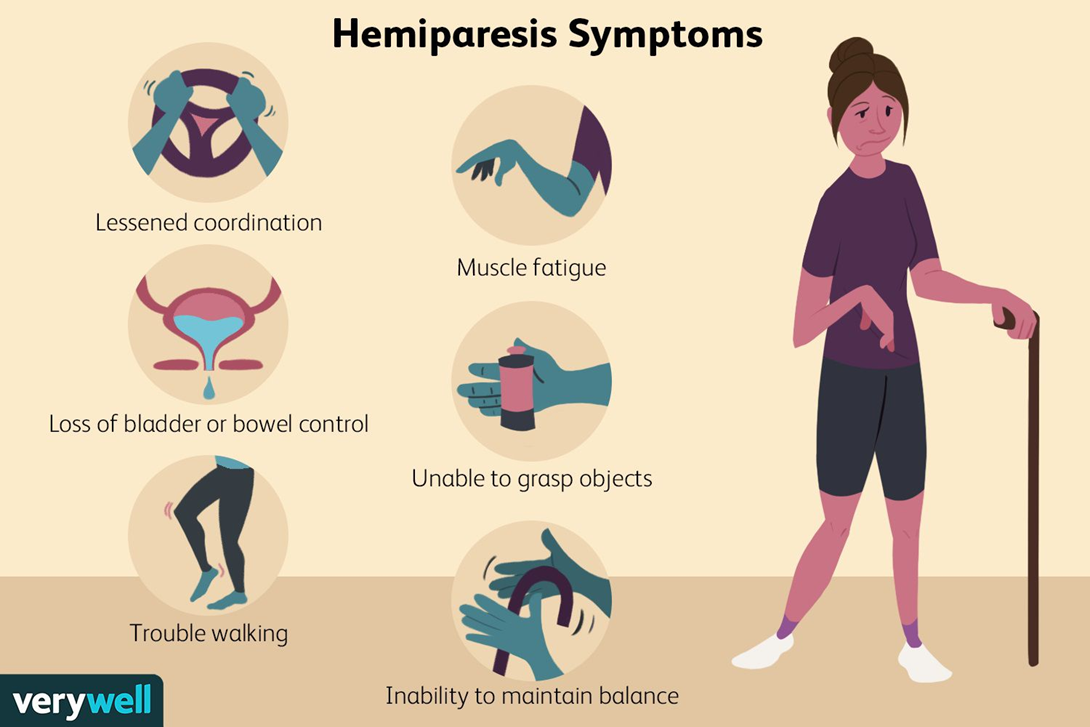A nurse in the emergency department is assessing a young adult client who was administered a hypotonic IV fluid bolus for rehydration after collapsing at an athletic event. Which of the following findings indicates the client is experiencing water intoxication?
Hypernatremia
Weak pulses
Muscle weakness
Exaggerated reflexes
The Correct Answer is C
Choice A reason: Hypernatremia is not a sign of water intoxication, but rather the opposite condition. Hypernatremia means high sodium levels in the blood, which can occur when the body loses more water than sodium, such as in dehydration, diabetes insipidus, or excessive salt intake. Water intoxication causes hyponatremia, which means low sodium levels in the blood, due to excessive water intake or retention.
Choice B reason: Weak pulses are not a specific sign of water intoxication, but rather a general sign of poor perfusion or circulation. Weak pulses can have many causes, such as hypotension, shock, heart failure, or peripheral vascular disease. Water intoxication can cause hypotension, but it can also cause hypertension, depending on the volume status of the client.
Choice C reason: Muscle weakness is a sign of water intoxication, as it reflects the effect of low sodium levels on the neuromuscular system. Sodium is essential for nerve and muscle function, as it helps generate electrical impulses and contractions. When sodium levels drop too low, the nerves and muscles become less responsive and weaker. Other signs of water intoxication affecting the nervous system include confusion, headache, seizures, and coma.
Choice D reason: Exaggerated reflexes are not a sign of water intoxication, but rather a sign of hyperreflexia, which is a condition of overactive reflexes. Hyperreflexia can have many causes, such as spinal cord injury, stroke, multiple sclerosis, or electrolyte imbalance. Water intoxication can cause electrolyte imbalance, but it usually leads to hyporeflexia, which is a condition of reduced or absent reflexes.

Nursing Test Bank
Naxlex Comprehensive Predictor Exams
Related Questions
Correct Answer is B
Explanation
Choice B reason: Older adults should decrease their calorie intake as their metabolic rate and physical activity tend to decline with age. Excess calories can lead to weight gain and increase the risk of chronic diseases such as diabetes, cardiovascular disease, and some cancers. Older adults should aim for a balanced diet that meets their nutritional needs without exceeding their energy requirements.
Choice A reason: Older adults should not decrease their vitamin D intake, as vitamin D is essential for bone health and immune function. Older adults are at risk of vitamin D deficiency due to reduced sun exposure, decreased skin synthesis, and impaired absorption. Vitamin D deficiency can cause osteoporosis, fractures, muscle weakness, and infections. Older adults should consume adequate amounts of vitamin D from fortified foods, supplements, or sun exposure.
Choice C reason: Older adults should not decrease their protein intake, as protein is important for maintaining muscle mass, strength, and function. Older adults are prone to sarcopenia, which is the loss of muscle mass and quality due to aging. Sarcopenia can impair mobility, balance, and independence. Older adults should consume enough protein from animal or plant sources to prevent or delay sarcopenia.
Choice D reason: Older adults should not decrease their fiber intake, as fiber is beneficial for digestive health and blood glucose control. Older adults often suffer from constipation, diverticular disease, and diabetes, which can be alleviated by increasing fiber intake. Fiber can also lower cholesterol levels and reduce the risk of heart disease and some cancers. Older adults should consume at least 25 grams of fiber per day from fruits, vegetables, whole grains, legumes, nuts, and seeds.
Correct Answer is B
Explanation
The correct answer is: b. Offer the client frozen bananas as a snack.
Choice A: Discourage the use of a straw
Discouraging the use of a straw is not the best intervention for a client with stomatitis following radiation therapy. While using a straw might cause some discomfort, it is not a primary concern. The focus should be on providing soothing and non-irritating foods.
Choice B: Offer the client frozen bananas as a snack
Offering the client frozen bananas as a snack is an appropriate intervention. Frozen bananas can provide a soothing effect on the inflamed oral tissues and are less likely to cause irritation compared to other foods. They are also nutritious and easy to consume, making them a suitable option for clients with stomatitis.
Choice C: Serve the client hot meals
Serving hot meals is not recommended for clients with stomatitis. Hot foods can exacerbate the discomfort and irritation in the mouth, making it more painful for the client to eat. It is better to serve foods at a moderate or cool temperature to avoid further irritation.
Choice D: Avoid serving sauces or gravies
Avoiding sauces or gravies is not the best intervention for a client with stomatitis. While some sauces or gravies might be irritating, others can be soothing and help make the food easier to swallow. The key is to choose mild and non-spicy options that do not irritate the oral tissues.
Whether you are a student looking to ace your exams or a practicing nurse seeking to enhance your expertise , our nursing education contents will empower you with the confidence and competence to make a difference in the lives of patients and become a respected leader in the healthcare field.
Visit Naxlex, invest in your future and unlock endless possibilities with our unparalleled nursing education contents today
Report Wrong Answer on the Current Question
Do you disagree with the answer? If yes, what is your expected answer? Explain.
Kindly be descriptive with the issue you are facing.
